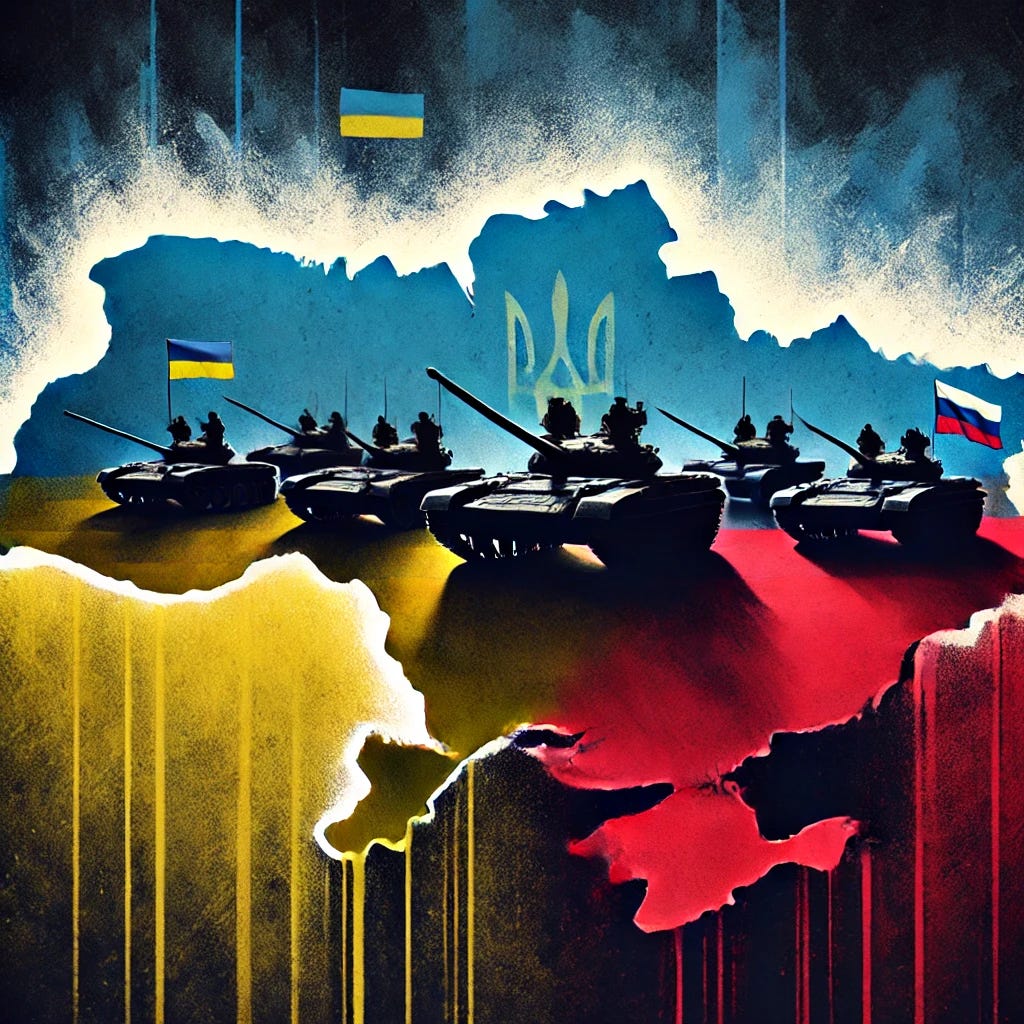In a significant shift in Ukraine’s stance, the Head of the Presidential Office, Andriy Yermak, indicated in an interview with Swedish publication Dagens Industri that negotiations with Russia could begin if the situation returns to the conditions of February 23, 2022—the day before Russia’s full-scale entry to the war. This marks a departure from Ukraine’s earlier demands for a complete withdrawal of Russian forces to the 1991 borders or current (mostly) internationally recognised, encompassing Crimea and all territories in the Donbas region.
A New Starting Point
Yermak emphasized that meaningful negotiations require a willingness from all parties to end hostilities. He stated:
"Fruitful negotiations are possible only when all warring parties have a desire to stop hostilities. In addition, the situation must be returned at least to the state of February 23, 2022. This would be a starting point for further settlement, since until that date part of Ukraine was occupied. But Russia shows no signs of such readiness, continuing the escalation."
This is the second time this month that Yermak has highlighted the February 24, 2022, line as a potential basis for peace talks. In early November, he similarly suggested that Ukraine could consider opening negotiations if Russian forces retreat to the positions they held before their full-scale entry to the war.
A Shift in Strategy
For much of the conflict, Ukrainian officials, including President Volodymyr Zelensky, had maintained that negotiations with Russia were only possible after the complete withdrawal of Russian troops to Ukraine’s internationally recognized 1991 borders. This position included the return of Crimea, and parts of the Donbass.
However, the ongoing conflict and its challenges have prompted a reassessment of this stance. Zelensky himself recently acknowledged the difficulty of reclaiming all territories by military means, signaling a potential shift toward more pragmatic objectives.
The Role of Western Support
Ukraine’s adjusted position may also reflect broader strategic considerations, including the level of Western support and the realities of prolonged warfare. Western allies have continued to provide substantial military and financial aid, but some have also expressed concerns about the conflict’s duration and global economic consequences.
The New York Times recently reported that Ukrainian officials have deprioritized the return of all territories, focusing instead on achievable goals. This recalibration could be aimed at securing international backing for a negotiated settlement that halts further escalation while preserving Ukraine’s sovereignty.
Implications for Peace
Ukraine’s revised stance may be a pragmatic step toward breaking the current deadlock, but it also raises questions about the future of the country as a whole.
This approach could open the door to international mediation efforts and a potential diplomatic resolution, but many factions within Ukraine remain committed to a full Russian withdrawl.
Conclusion
Andriy Yermak’s comments underscore a notable evolution in Ukraine’s approach to the conflict, reflecting both the complexities of prolonged warfare and the importance of pragmatism in achieving peace. While the ultimate resolution remains uncertain, this shift could lay the groundwork for future negotiations.





Welcome to substack Patrick.
Saw your show with Duran. You are a good writer and a kind hearted man, bless your soul
The Ukrainians are understandably making a pitch for a much better resolution than they can hope for, with Russia holding all the cards at the present time and their hand will only improve the longer this war lasts. Putin will be in no mood to play nice after the recent Medium Range Missile strikes into Russian territory. Russia can also quite rightly point to the referendums undertaken by the ‘Separatist Regions’ which were pretty decisively for seceding from Ukraine and joining the Russian Federation. It’s one thing for Kyiv to talk of “recognised borders”, along the lines prior to the Russian SMO, but the people of those regions were subjected to seven years of bombing and shelling, with almost twenty thousand people killed by the Ukrainian army and the far-right, neo-nazi, Nationalist Militias. Its part of the story US lead, Western (NATO), Governments purposely leave out of their anti-Putin and propaganda but the people of the Donbas Regions are not likely to give their consent to being forced back into the “legal territory” of the very regime that is responsible for those seven years of war crimes and atrocities. They are mostly ethnic Russians and have Russian as their first language. They were begging Putin to come to their aid and after holding off for as long as he could, giving the ‘Minsk peace agreement’ a chance, he rightly saw that the US-NATO/Ukraine alliance was ‘negotiating’ in bad faith to stall for time. This isn’t some kind of secret. Several former European officials and leaders - Germany’s Merkel the most prominent - have openly stated (admitted) to the deception.
US-NATO/Ukraine f-cked around and now they’re finding out. FAFO.